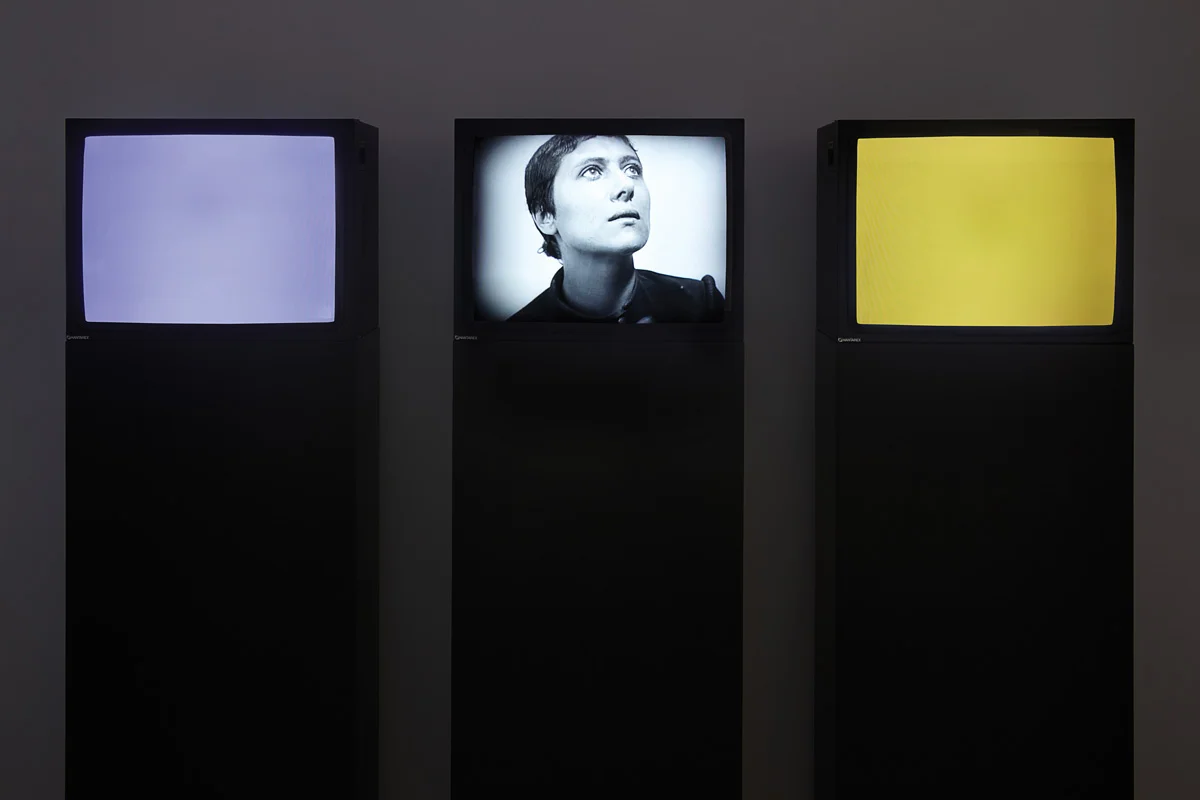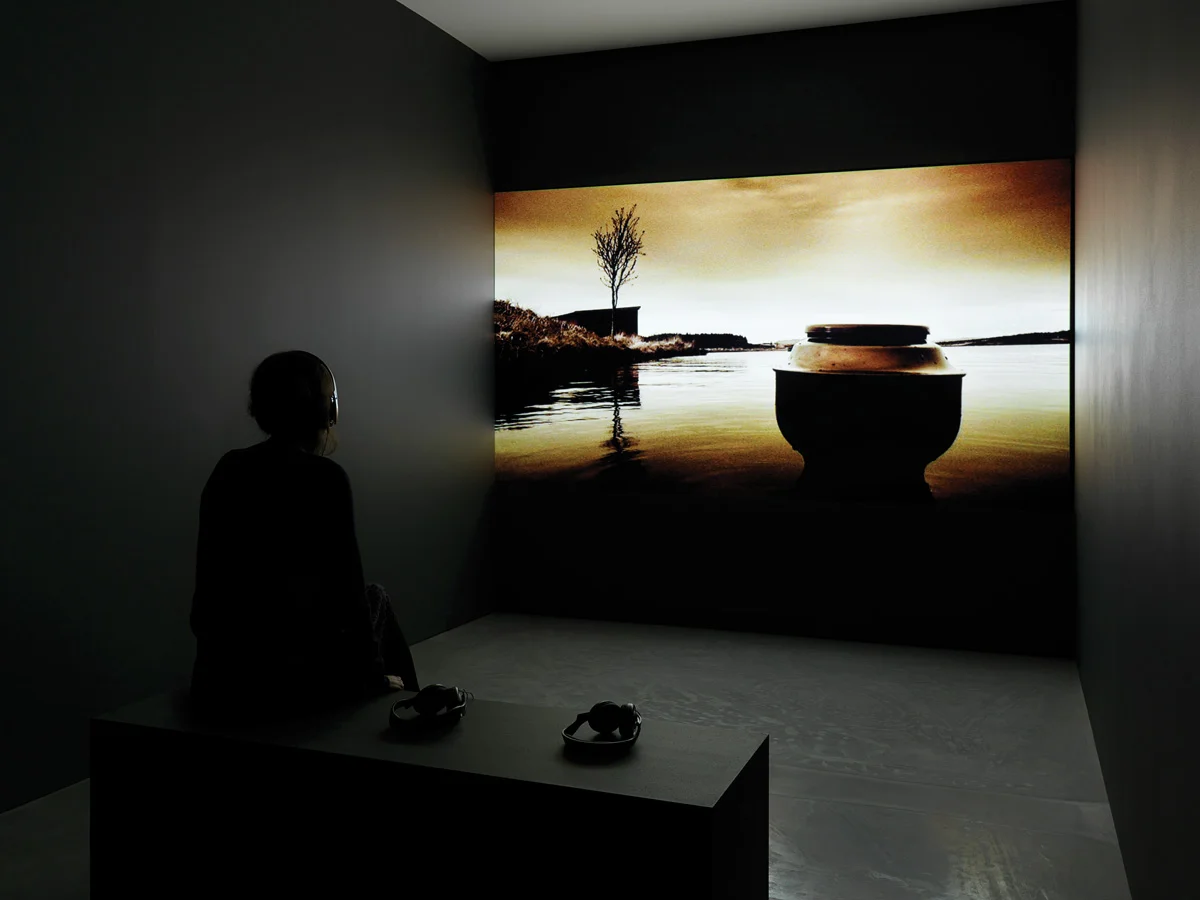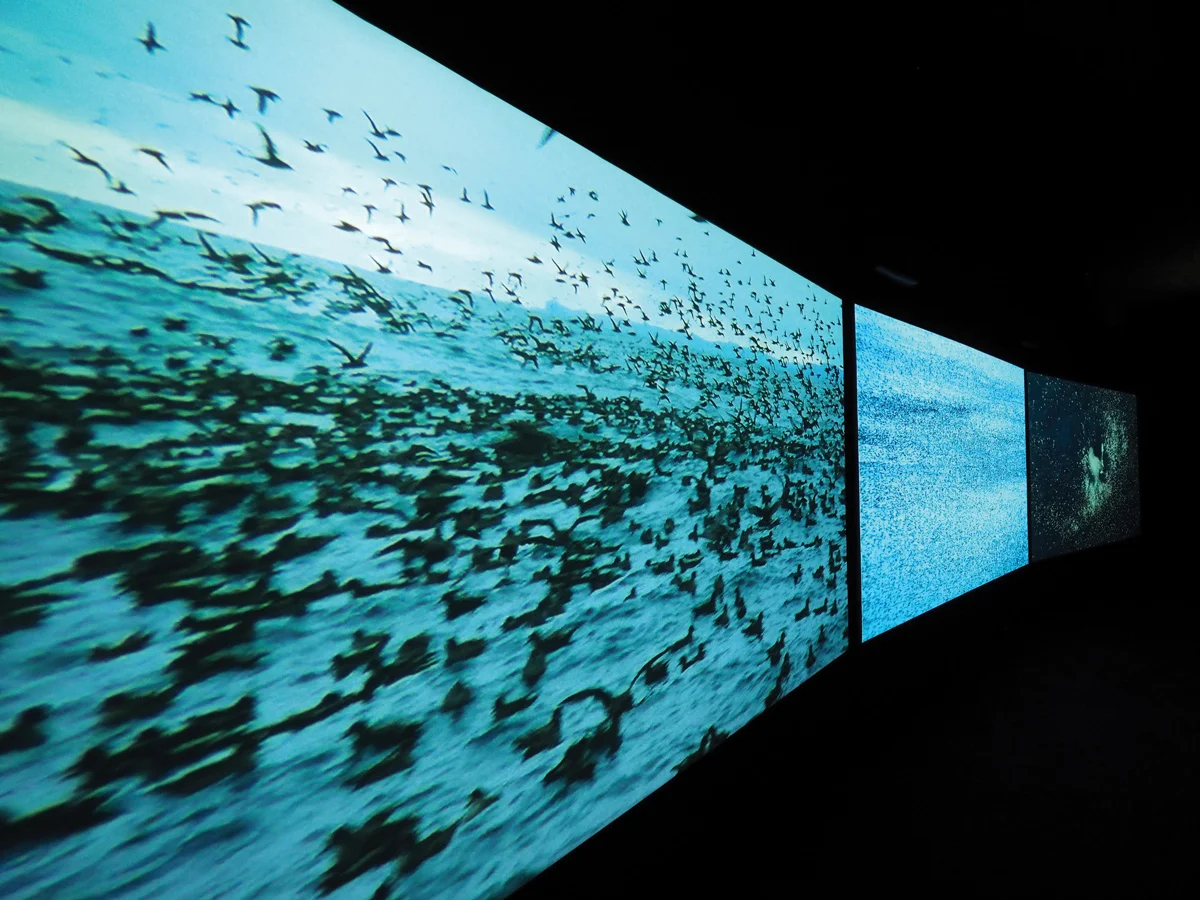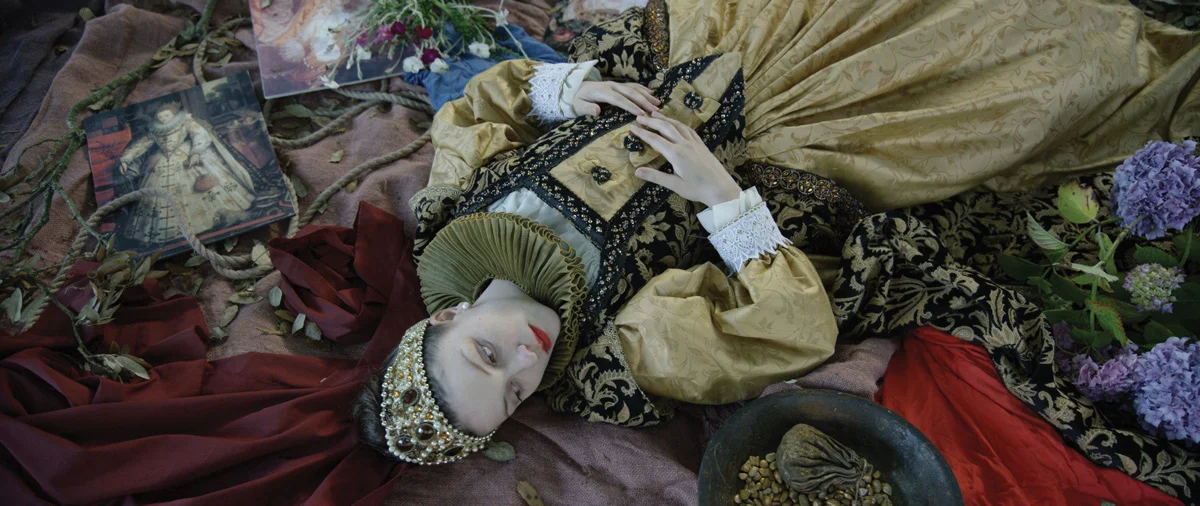
Exhibition view, “Psyche,” (2012). Three channel HD video installation, color, sound. 20 Minutes. ©Smoking Dog Films. Courtesy the artist.

Exhibition view, “The Call of Mist (Redux),” (2012). HD video, color, sound. 14 minutes. ©Smoking Dog Films. Courtesy the artist.

Exhibition view, “Vertigo Sea,” (2015). Three channel HD video installation, color, sound. 48 Minutes. ©Smoking Dog Films. Courtesy the artist.

Still from “Tropikos,” (2016). Single channel video, color, sound. 2 minutes 20 Seconds. ©Smoking Dog Films. Courtesy the artist.
[](#)[](#)
John Akomfrah
“As a kid I went to an Althusserian study group”\*–Where the filmmaker John Akomfrah goes reel to reel with his 2012 interview with the Guardian
Although John Akomfrah has been working in the public eye since his collective Black Audio Film released their first film _Handsworth Songs_ in 1986, recent years have seen a resurgence in his popularity, possibly spurred—as the _Guardian_ suggested—by the modern malaise for formulaic commercial entertainment units and the wilds of the Internet film scene.
The art world, in particular, “has embraced”\*.1 Akomfrah. His newest film, _Vertigo Sea_ is currently on display at the Venice Biennale. _Vertigo Sea_—a triptych installation based on Ralph Waldo Emerson’s “the sublime seas” from his oft-quoted journal entry: “Be not the slave of your own past. Plunge into the sublime seas, dive deep and swim far, so you shall come back with self-respect, with new power, with an advanced experience that shall explain and overlook the old”\*.2—is based on archival material, new footage, and readings from classical sources.
Akomfrah’s career-long exploration of social and political justice—which began in Ghana where his parents were involved in anti-colonial activism—has brought his oeuvre into the spotlight. In 2012, after the deep wounds of the August 2011 riots across England, (in response to the death of Mark Duggan at the hands of police) a screening of _Handsworth Songs_ at the Tate Modern brought huge crowds of spectators who were eager to engage in a dialogue started almost 30 years previously.
January 2016 will see the artist’s first solo exhibition at Lisson Gallery in London, including two unseen diptych video installations taking on both the world economic crisis (as seen through the lens of Greece) and the current refugee crisis.
#### **You mention the challenge, at large, of discussing difficult histories, and that speaking of them can cause one to lose their seat at the table. Do you believe that cinema represents a unique space where these histories can be examined? Are there factors that the film industry at large can (and should) affect in order to facilitate just such examinations? Or, is this too idealistic?**
Both, really; but my sense is that some questions are better raised in some spaces than others. For me, the cinema now is like a set of vastly interconnected “living rooms” in which different games are being played out for mutually exclusive ends. And the games being played by Pedro Costa in one room are not the same as Hou Hsiao-Hsien’s, for instance, in the adjoining one, or Sally Potter’s, for that matter, in another. And some “rooms” preclude “difficult histories” more than others: Christopher Nolan, for example, is not playing in a room where he is expected to tackle history as difficulty; but Terrence Malick or Apichatpong Weerasethakul might be.
#### **“This commitment to radicalism both in politics and of cinematic form finds expression in all films.”\*.3**
When schoolchildren in this country are not allowed to learn about our Empire past for fear that it might give them a “bad” impression of the past, you know we are operating in our space of bad faith. And, yes, I do think it prohibits a play and an ease with that past.
#### **Given the recent events in Paris, how do you, intellectually, interpret reports of American states immediately instating blanket bans on Syrian refugees? Granted, your canon is known to explore the immigrant experience; do you believe avant garde cinema can affect the immigrant situation as it unfolds?**
Yes I do. And that’s the challenge for the next two pieces. Come see them at the Lisson Gallery next January and let me know what you think, okay?
#### **Recently you spoke about young filmmakers and this idea of “going out and getting it done”—that this ethos might have been lost—conversely, can you think of examples where young filmmakers have done the opposite? In what ways have emerging filmmakers surprised you? Delighted you?**
My examples are not, strictly speaking, “young filmmakers” but artists younger than me, let’s say, whose work embodies that spirit for me, that sense that “getting it done” is an imperative that should vastly outweigh all others—The Otolith Group, Redmond Entwistle, Zineb Sedira, Mark Boulos, Alia Syed, Basel Abbas and Ruanne Abou-Rahme, Luke Fowler. Many many more, but those come immediately to mind.
#### **Given that you have been making films for 30 years, and technology and information are not slowing down, is there a single film you’ve made where you feel like, “this film is truly reflective of my vision. I wouldn’t go back and change a thing?”**
The way things play out for me is that the last piece made is always the one that appears “inviolable.” So that would be _Vertigo Sea_. Things change though.
#### **\*** [Sandhu, S. “John Akomfrah: Migration and memory,” _Guardian_, January 2012.](http://www.theguardian.com/film/2012/jan/20/john-akomfrah-migration-memory)
#### **\*.1** [Lyttle, S. “Kansas native Branden Dozier has embraced Charlotte, role in 49ers’ secondary,” _The Charlotte Observer_, September 2015.](http://www.charlotteobserver.com/sports/college/football/article35745912.html)
#### **\*.2** [Emerson, R., & Gilman, W. (1960). The Journals and Miscellaneous Notebooks of Ralph Waldo Emerson. Cambridge: Belknap Press of Harvard University Press.](http://www.amazon.com/Journals-Miscellaneous-Notebooks-Emerson-Volume/dp/0674484738)
**\*.3** [Sandhu, S. _Guardian_, January 2012.](http://www.theguardian.com/film/2012/jan/20/john-akomfrah-migration-memory) † _Original question read: Do you believe that if our society worked without resistance to more honestly depict its past, that it might, counterintuitively, foretell a more just future?_
